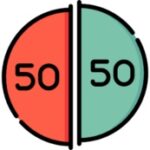 Even if you are not yet approaching retirement, it’s good to understand Social Security system basics. A key question is how much your Social Security retirement monthly benefit will be, based on your own work record.
Even if you are not yet approaching retirement, it’s good to understand Social Security system basics. A key question is how much your Social Security retirement monthly benefit will be, based on your own work record.
Social Security Retirement Benefits
Eligibility
First you have to be eligible. To be eligible you must have had at least 10 years of part-time or full-time work. The work eligibility requirement is actually figured as follows. You need at least 40 work “credits” and you can earn as many as 4 credits per year. In 2014, each $1,200 in income earns you 1 credit so with as little income as $4,800 in a year, you can earn all 4 credits for the year. Once you have accumulated 40 or more credits, you have met the work eligibility requirement.
If you don’t have enough work credits and no work outside the U.S. to add to your work record, there are still two ways to be eligible to receive Social Security retirement benefit payments:
• File a claim on the work record of someone else to whom to have you a current or previous marriage (Social Security Spousal Benefits);
• Work the additional years required to gain enough credits (it doesn’t matter how late in life you do this).
Your Monthly Benefit
The more you pay into the system, the more you will get back from it. The actual amount you will receive is based on two factors:
• Your lifetime average earnings;
• Your age when you begin taking payments.
To determine your Social Security retirement benefit amount, the Social Security Administration (SSA) first applies an inflation adjustment to each year’s earnings, then averages them, and then applies a formula to that average. Although the inflation adjustment is intended to even out your wages over the years, your recent wages are frequently the highest and have the most impact.
Your lifetime average earnings are based on your highest-earning 35 years of work. Wages from other years are ignored. If you don’t have 35 years of work, your wages for the non-working years are considered to be zero for the purpose of establishing your average lifetime earnings. Therefore, if for a number of years you didn’t work say because you were going to school or being a stay-at-home parent, your Social Security retirement benefit can be adversely affected.
There is a wage limit each year above which your earnings are not considered and therefore don’t increase your Social Security retirement benefit. In 2014 this was $117,000.
Once the SSA has worked out your average lifetime earnings, it applies a formula that has the effect of increasing the monthly benefit payment for low earners and limiting it for high earners.
To summarize and simplify, the SSA computes the amount your Social Security retirement payment will be at your “full retirement age” (explained below) from your best 35 years of work after adjusting them for inflation.
Retirement Age
The age at which you start collecting retirement benefits also affects the amount of your monthly payment. Until fairly recently, 65 was the “full retirement age.” For people born between 1943-1954 it is now 66. For people born in 1960 or later it is 67. For those born between 1955-1959 it is between age 66 and 67.
You can file for early Social Security retirement payments as young as age 62. However, if you apply for payments before your full retirement age, your monthly payment amount is permanently reduced. The earlier you start receiving payments, the greater the reduction. If you apply 4 years early, your monthly payment amount will be only 75% of what it would be if you apply at full retirement age. So if you would have received $1,600/month for life at a full retirement age of 66, you will only receive $1,200/month if you start collecting at age 62.
You can also start receiving Social Security retirement payments after you reach full retirement age. You can wait as many as 4 years and if you do so, your monthly payment will be 132% of what it would be if you started taking payments at full retirement age. So if you would have received $1,600/month at a full retirement age of 66, you will receive $2,112/month for the rest of your life if you start collecting at age 70.
Actually the amount you receive will go up very slightly each year because the SSA annually adjusts your retirement benefit amount for inflation.
You can determine the amount the SSA estimates you will get based on your own work record at www.ssa.gov/myaccount. You can try out different possible work and retirement scenarios using their estimator tool at www.socialsecurity.gov/estimator.
There are special coverage rules and computations for people who will get a retirement pension from a job where they paid no Social Security taxes (generally civil service workers), for self-employed people and some others.







